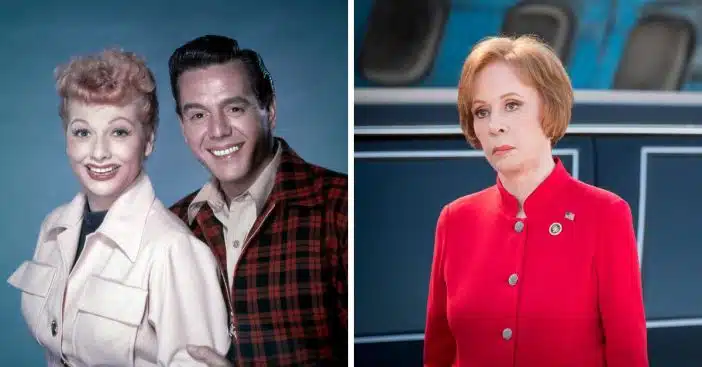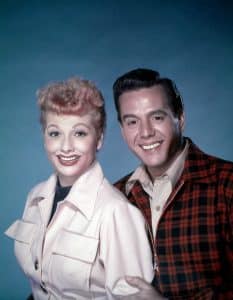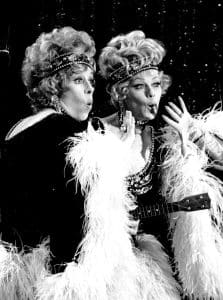
The legacy of Lucille Ball endures as a symbol of groundbreaking triumph. But according to fellow trailblazer Carol Burnett, Lucille had to push the envelope even further and show nothing but tough strength and personality after Ball divorced Desi Arnaz.
This, 90-year-old Burnett explained, was unheard of for a woman in the industry at the time. It was also the only way Burnett’s famous mentor could continue to hold her own in the entertainment world. Here is the remarkable strength of character Burnett witnessed from Ball amidst an infamous separation.
Carol Burnett says Lucille Ball had to embrace her tough strength through her divorce with Desi Arnaz

Ball and Arnaz became husband and wife in 1940 and they rose together to national fame together in the ’50s, first with their vaudeville act, then pn national television. They would be the ultimate, original power couple on TV throughout the production of I Love Lucy, targeting different areas as a team.
RELATED: Lucille Ball And Desi Arnaz’s Final Words To Each Other
“[Ball] said Desi would deal with the writers; he would deal with the scripts,” explained Burnett, who recalled Ball saying, “All I had to do was come in on Monday and be Lucy. I didn’t have to do anything but perform.”
But that was not to last. “Then we got divorced,” said Ball, according to Burnett “That’s when they put the ‘S’ on the end of my name.”
Burnett saw her mentor stay bold and assertive in a way she didn’t know how to be

There was the risk of Ball, once no longer half of a bigger formula, could have been walked all over. But she had a strong will and equally strong presence even when not performing a scene as the zany housewife; she took that energy and translated it into something that would see her vision realized without compromise.
“She had to get tough,” Burnett explained. “No one would listen to crazy little Lucy, so she had to be truthful, and it was unheard of for the women to do that.”
Burnett herself had a hard time with it, she admitted, sharing, “If I didn’t like something, I would say, ‘you know, maybe it’s me, but I’m just not very good in this sketch. It was my way of getting around, and I didn’t want anybody to get mad at me.”
Not so Ball. “She never censored herself, from here to here,” Burnett recalled, pointing from her head to her mouth. “Whatever she said, she was thinking. And sometimes it came out like, whew. She’ll say, ‘What’s that light up there for? What are you doing with the light?’ (to the lighting guy). He’ll say, ‘Lucy, I’m doing the such and such.’ She’ll say, ‘OK, let me see.'”
If the worker had the right lighting, the final blessing came from Ball. “She wasn’t trying to pick on anybody,” Burnett explained, “that’s just the way she was, and they would lay their lives down for her because when she said ‘that’s great,’ she meant it. When she said ‘that stinks,’ she meant it, but it was never personal.”

In a time when passivity could lose a person total control of their work, and aggression could sour entire legacies, Ball walked a delicate line that inspired her contemporaries looking for the same success and those behind the camera who helped Lucille build hers. It’s a small wonder that when Burnett was a rising star without a groundbreaking sketch comedy of her own, Ball was her idol – and eventually her friend.
That friendship counted for something too; each woman went the distance for the other. For instance, when CBS gave Burnett the green light for a one-hour special, but only if she could land an elite guest star, she knew who she could count on. Burnett recalled, “She said, ‘I’ll be there. When do you want me there?’ And that was it.”
Tragically, the day Ball died ended up falling on Burnett’s birthday. By then, the I Love Lucy icon had long made a practice of sending Burnett flowers for her birthday. A bouquet still made it to her that day. As Carol recalled, “That afternoon, I got flowers from her that said, ‘Happy Birthday, kid.'”
